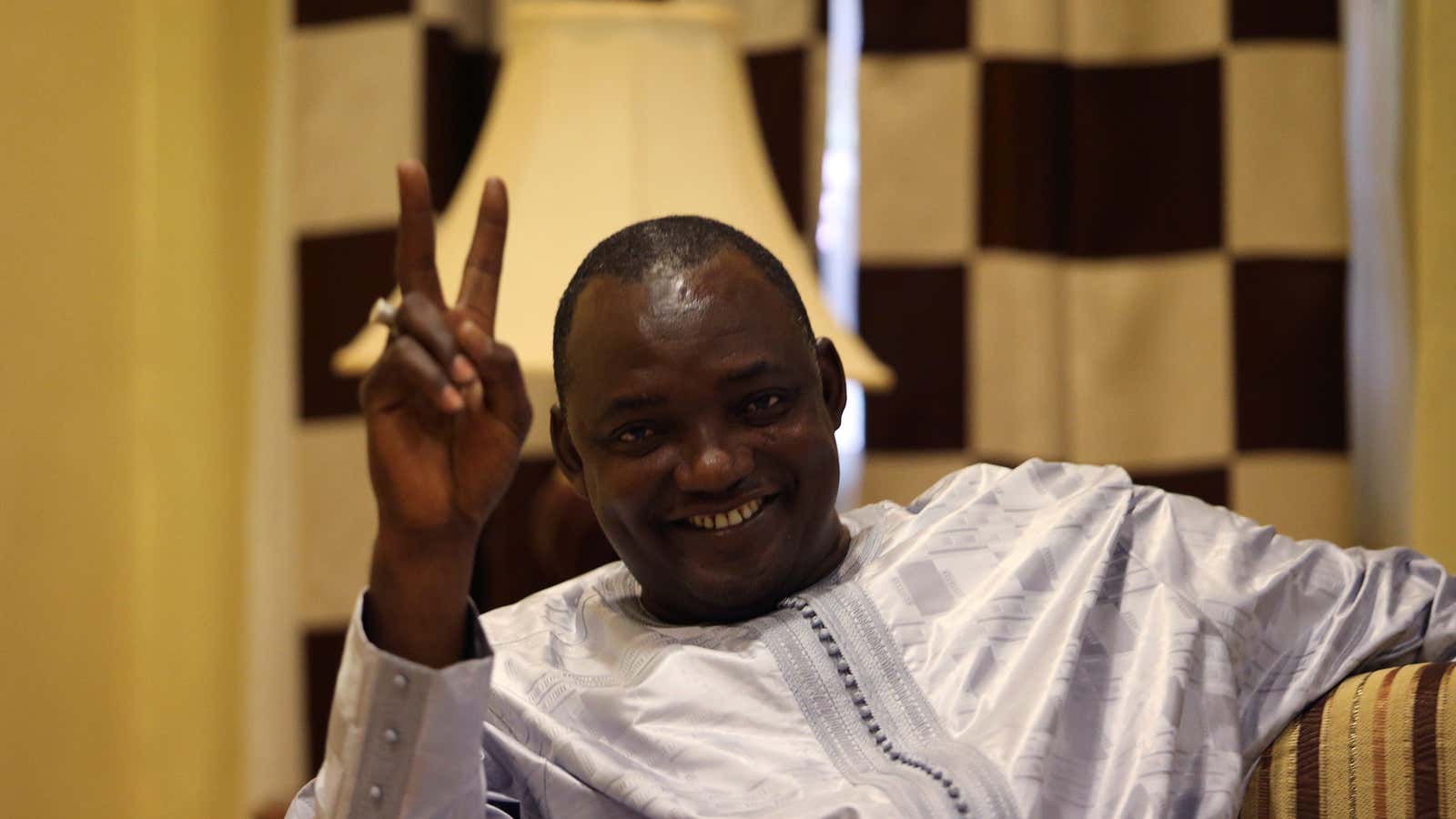A tumultuous period in The Gambia looks to be ending as the country’s new president, Adama Barrow, returned to the country from Senegal today to begin his tenure.
Gambians elected Barrow as their next president in December, but longtime leader Yahya Jammeh contested those results and refused to step down. Barrow was inaugurated in a makeshift ceremony at Gambia’s embassy in Dakar on Jan. 19, while leaders from the Economic Community of West African States (ECOWAS) worked to convince Jammeh to cede power. The former president has since gone into exile in Equatorial Guinea.
Following a difficult week which saw ECOWAS troops enter The Gambia, and thousands of citizens fearful of violence flee, the immediate task for Barrow will be to restore calm and help Gambia navigate its first ever peaceful transition of power (Jammeh took power in a military coup 23 years ago). The new president will also have to ensure there is no lasting damage to the country’s tourism sector, which accounted for 20.2% of Gambia’s GDP in 2015.
Long-term, Barrow has hinted that he will look to restore democratic rights and principles in the country after decades of press and human rights suppression under Jammeh. “An environment where there is no fear,” Barrow says, is crucial to ensuring “real development” in the tiny West African country, where around 60% of people live in poverty. Young Gambians frequently look to Europe for opportunity, and last year represented the fourth-largest group of migrant arrivals to Italy, according to the International Organization for Migration (IOM).
As Barrow kicks off a new chapter in Gambia’s history, the international community, which provided vital diplomatic support after the elections, will hope for improved relations with the country. Karamba Touray, an aide to Barrow, has said the new president will reverse some of Jammeh’s isolationist foreign policies, such as its exit from the International Criminal Court.
